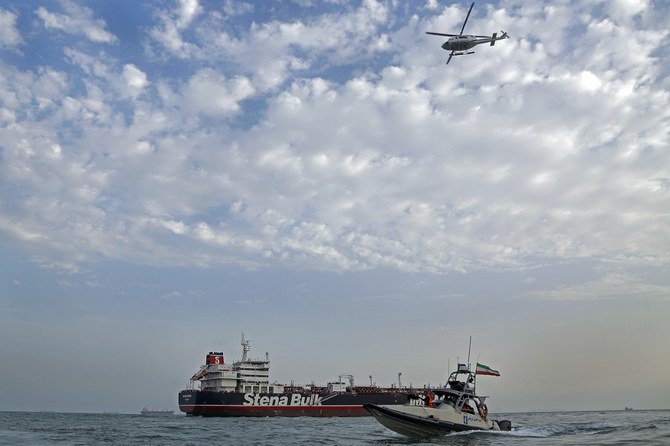No tanker swap, obey the law: UK takes a tough new line with Iran

Britain on Monday rejected an Iranian offer to swap seized tankers, and told Iran to obey international law.
The tough line under new Prime Minister Boris Johnson suggests London may be deserting the European consensus on placating Tehran and backing the US policy of “maximum pressure” on the regime.
“If the Iranians want to come out of the dark and be accepted as a responsible member of the international community they need to adhere to the rules-based system,” Britain’s new Foreign Secretary Dominic Raab said. “You cannot go about unlawfully detaining foreign vessels.”
Revolutionary Guards boarded a British tanker in the Strait of Hormuz this month and forced it to divert to an Iranian port, in retaliation for Britain’s seizure in the Mediterranean of an Iranian tanker carrying oil to Syria in breach of EU sanctions.
Iranian President Hassan Rouhani has suggested the vessels could be exchanged, but Raab ruled it out.
“This is not about some kind of barter,” he said. “This is about international law … being upheld, and that is what we will insist on.”
Raab also rowed back on his predecessor’s proposal for a purely European-led naval force to combat Iranian piracy.
The initiative would require US support to be “viable and effective,” he said.
Meanwhile, South Korea is to send its elite Cheonghae anti-piracy unit to the Gulf to protect ships from Iranian attacks. The 300-strong unit operates from a 4,500-ton KDX-II destroyer equipped with a Lynx anti-submarine helicopter. Most recently it has been on duty off Somalia.
“Given the importance of the alliance with the US, it’s imperative for us to take a role,” a senior officer told Arab News.
In a sign of further pressure on Tehran, the regime asked China on Monday to buy more of its oil.
“We are aware that friendly countries such as China are facing some restrictions, but we expect them to be more active in buying Iranian oil,” Vice President Eshaq Jahangiri said.
